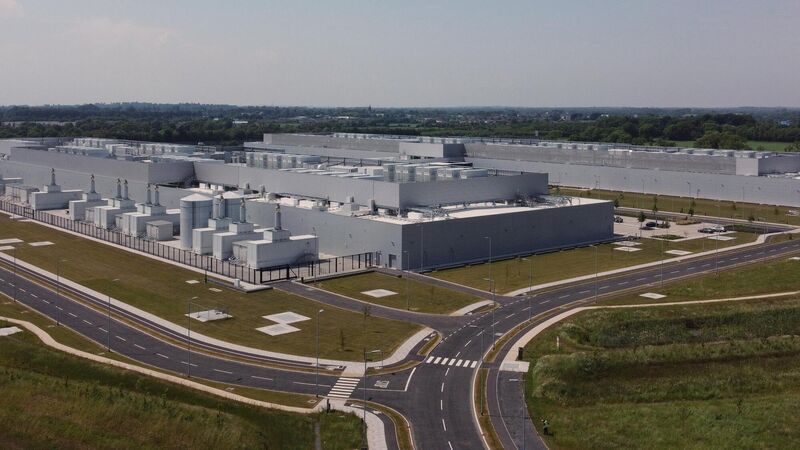Proposal excuses new data centres from using renewable sources as back-up electricity

Meta's data centre in Clonee, Co Meath. Electricity demand from data centres rose from 5% of national demand in 2015 to 21% in 2023. File picture: Niall Carson/PA
New data centres will not be required to use renewable sources for their own back-up electricity generation under proposed new rules by the energy regulator.
Although data centres are deemed critical for contemporary infrastructure and Ireland’s economic growth, concerns have been raised about their increasing demand on Ireland’s electricity network and contribution to carbon emissions at a time when Ireland is battling to reach its climate targets.













